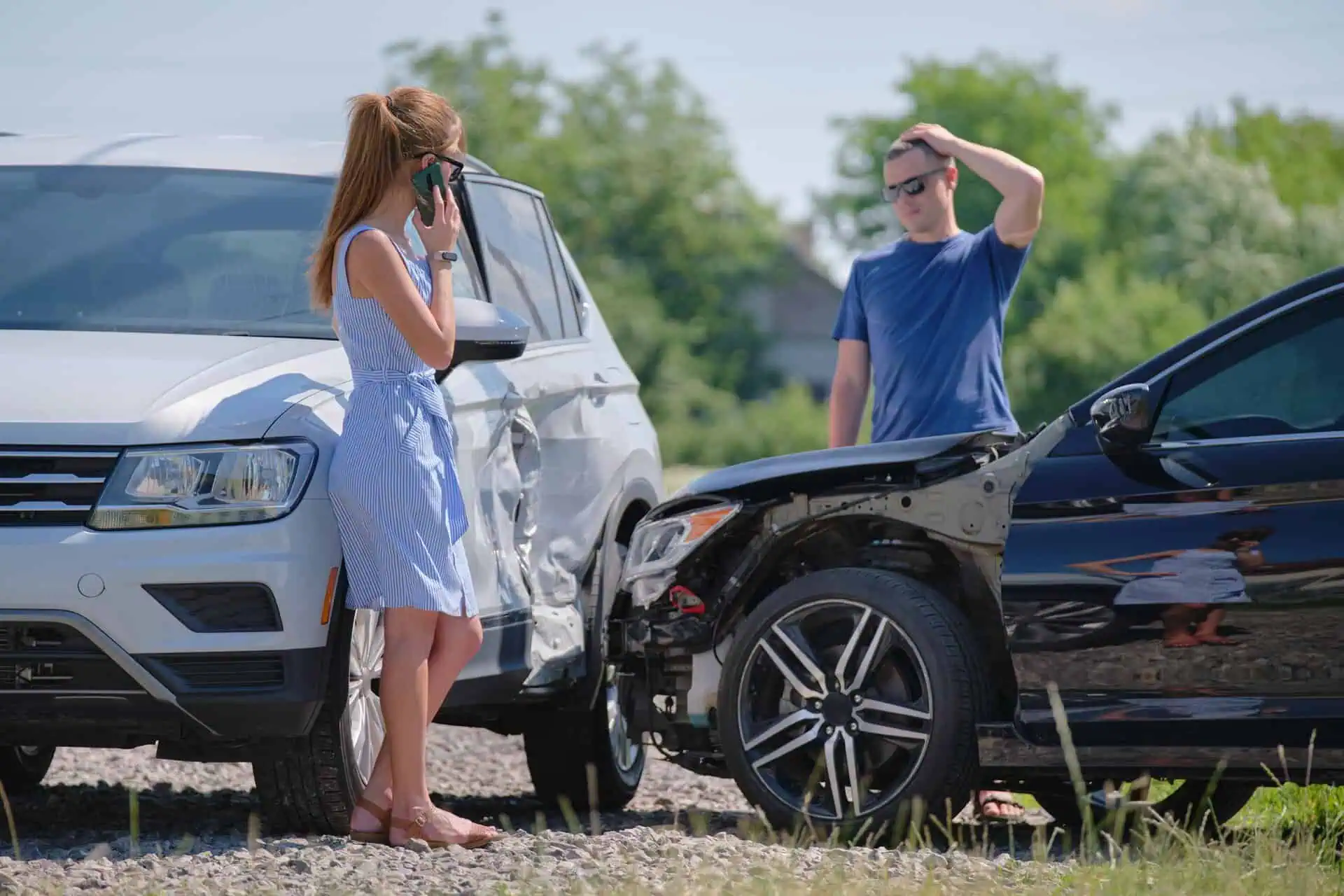When it comes to protecting your vehicle, most Vermont drivers purchase car insurance with peace of mind in mind. However, not every policy provides the same level of protection, and unexpected gaps in coverage can lead to expensive surprises after an accident or loss. At T.S. Peck Insurance, we help Vermont drivers understand how their car insurance actually works in real-world scenarios—before they ever need to file a claim.
In this post, we’ll take a closer look at what happens when your coverage meets reality, and how to make sure your policy keeps up with life’s unpredictable turns.

What Happens If You’re in an Accident With an Uninsured or Underinsured Driver?
Vermont law requires all drivers to carry auto insurance, but not everyone on the road complies. Even if a driver does have coverage, their limits might not be high enough to pay for all the damages they cause.
This is where Uninsured and Underinsured Motorist Coverage (UM/UIM) can be helpful. These options can step in to help cover expenses when the at-fault driver’s insurance doesn’t meet the costs of medical care, vehicle repair, or other related damages.
While Vermont mandates minimum UM/UIM coverage, those limits might not reflect the full financial reality of a serious accident. Many drivers find that reviewing and adjusting these limits with their insurance advisor provides greater peace of mind on Vermont’s rural highways and snowy backroads.
How Would Your Policy Handle a Major Collision?
After a serious accident, your first concern is safety—but the next is often financial. From towing and repairs to rental car costs and medical expenses, the bills can add up quickly.
Your collision coverage may help pay for damage to your vehicle, regardless of fault, but the amount you receive depends on your deductible and the actual cash value (ACV) of your car at the time of the loss. Because vehicles depreciate over time, the payout might be less than what it costs to replace your car.
Discussing replacement cost coverage or gap insurance with your Vermont insurance agent may help reduce that financial gap, particularly for newer or financed vehicles. A quick policy review with T.S. Peck Insurance can help identify whether your current limits align with your vehicle’s current value and your financial comfort level.
Could Weather Damage Catch You by Surprise?
Living in Vermont means dealing with everything from icy winter storms to summer hail and the occasional flooding. While some weather-related damage might be covered under your comprehensive coverage, not all incidents fall neatly into that category.
Comprehensive coverage typically helps protect against non-collision events such as falling trees, fire, theft, or vandalism. However, water damage caused by flooding is usually treated differently and may not be covered under a standard auto insurance policy.
Vermont drivers who live near rivers, lakes, or low-lying areas may benefit from learning what types of weather events their current policies cover—and which ones might require additional protection.
If You Loan Your Car to Someone, Are You Still Covered?
It’s common for family members, friends, or neighbors to borrow a vehicle, especially in smaller Vermont communities. But many drivers are uncertain about how their insurance applies when someone else is behind the wheel.
In most cases, auto insurance follows the car, not the driver. That means your policy could still be responsible for damages if the person borrowing your car gets into an accident. However, this can vary depending on the situation and the insurance company’s specific guidelines.
Discussing permissive use and potential exclusions with your agent can help you understand where your coverage begins and ends. This conversation is especially important if you frequently share vehicles with other drivers in your household.
Are You Protected If an Animal Crosses the Road?
Vermont’s scenic routes come with their fair share of wildlife, including deer, moose, and smaller animals that can appear suddenly on rural roads. Collisions with animals are unfortunately common, particularly at dawn and dusk.
These types of incidents are typically covered under comprehensive insurance, not collision coverage. If your current policy doesn’t include comprehensive protection, you could be responsible for repair costs out of pocket.
Reviewing this portion of your coverage can help ensure your policy reflects the driving conditions you face every day in Vermont. Even a minor encounter with wildlife can result in costly front-end damage, so understanding how your policy would respond is key.
Would Your Coverage Be Enough in a Total Loss?
A “total loss” occurs when your vehicle’s repair costs exceed its value. In that situation, your insurance company may pay the actual cash value of your car rather than the replacement cost.
For many drivers, this can come as a shock—especially if the car is relatively new or still financed. Gap insurance can help bridge the difference between what your insurer pays and what you still owe on your loan or lease.
Working with a Vermont-based independent agency like T.S. Peck Insurance gives you access to multiple carriers and coverage options, so you can find a solution that fits your budget and your vehicle’s current value.
How Often Should You Review Your Auto Insurance Policy?
Many drivers set up their car insurance once and rarely look at it again, assuming it’s sufficient. However, life changes—new vehicles, different commuting distances, teenage drivers, or moves within Vermont—can all affect your coverage needs.
An annual review with a licensed insurance advisor can help ensure your policy still matches your situation. Regularly checking your coverage levels, deductibles, and available discounts may also reveal opportunities to improve protection or reduce costs.
T.S. Peck Insurance takes a personalized approach to policy reviews, focusing on how your coverage would perform in real-world Vermont scenarios. Whether you’re driving through Burlington, Stowe, or Montpelier, knowing that your insurance aligns with your current lifestyle can help you stay confident behind the wheel.
Is Your Policy Prepared for a Worst-Case Scenario?
Insurance is more than a legal requirement—it’s a safeguard against financial hardship when the unexpected happens. The key is ensuring that your policy not only meets Vermont’s minimum requirements but also reflects your personal comfort with risk.
If you’re unsure how your current policy would hold up in a serious accident, weather event, or total loss situation, a conversation with T.S. Peck Insurance can help clarify your options. As an independent agency serving Vermont since 1869, our goal is to help drivers understand their auto insurance from every angle—so they can make informed decisions before a worst-case scenario occurs.
Contact us today for a personalized Vermont auto insurance review. We’ll help you identify potential gaps, compare options across multiple carriers, and ensure your policy is built to handle whatever the road may bring.


